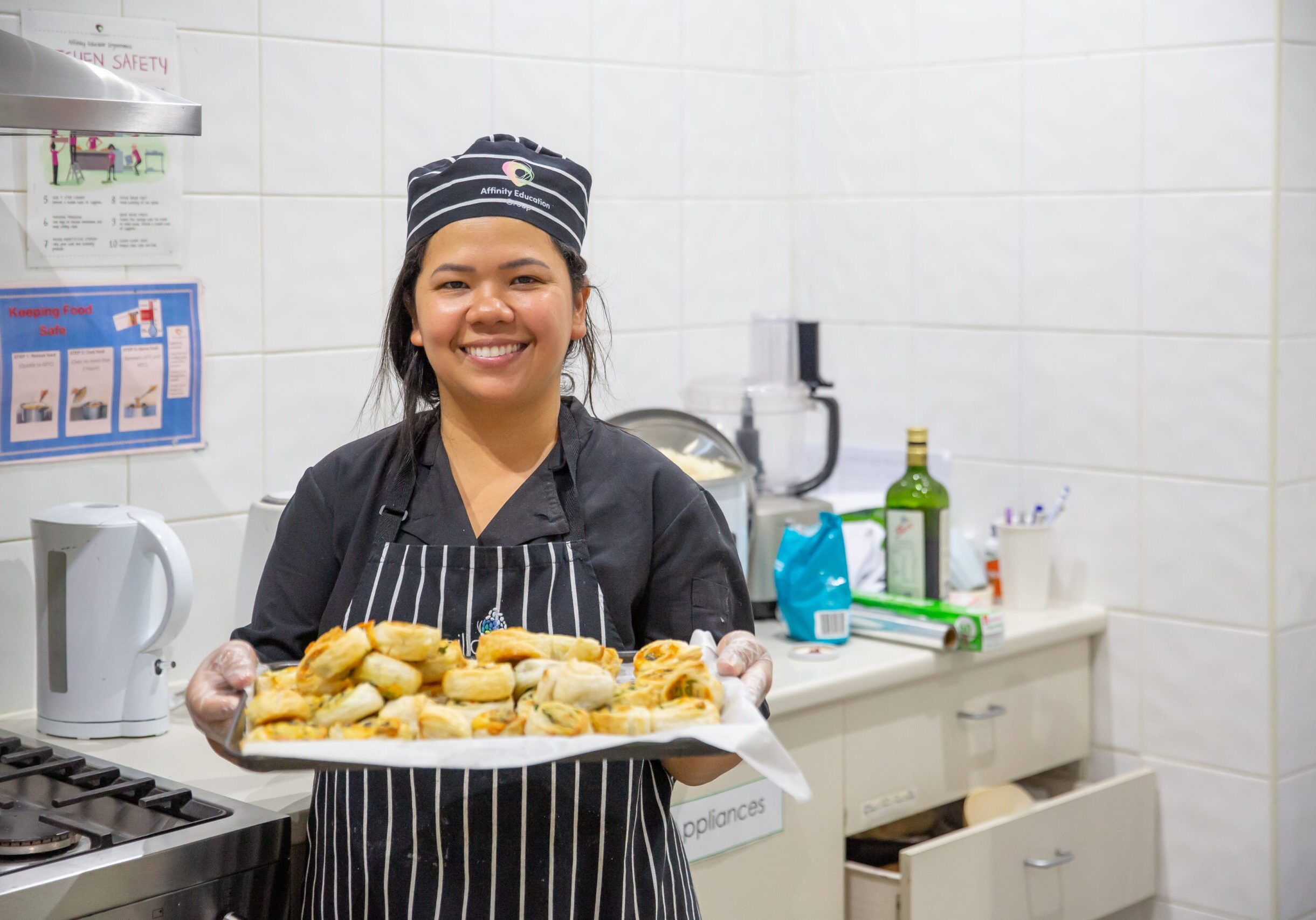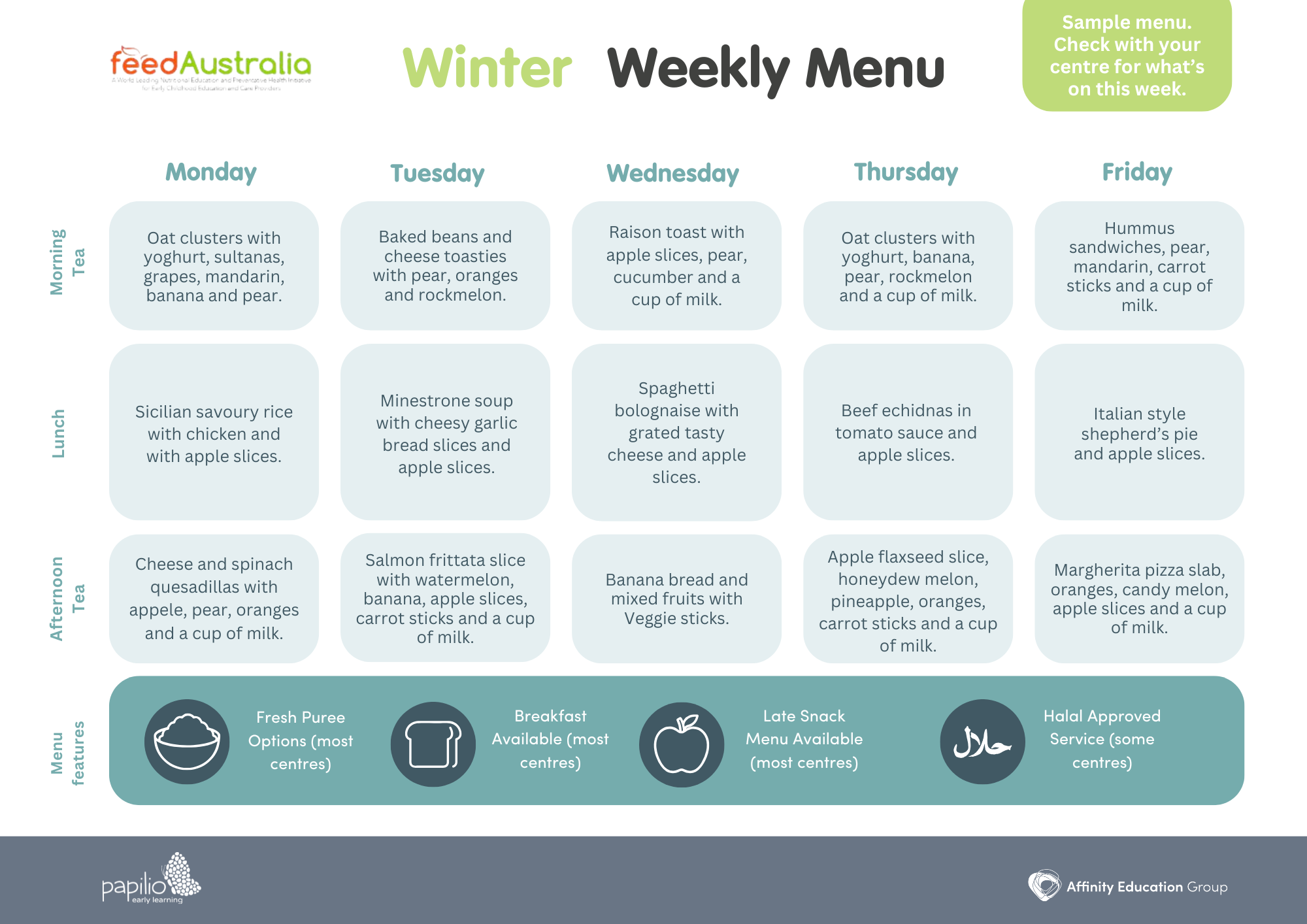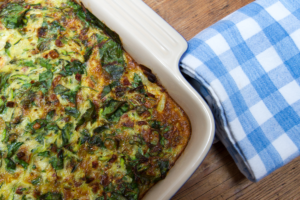Nourishing Every Day: Premium Meals for Growing Minds
At Papilio Early Learning, we believe that nutrition is the foundation of every great learning experience. That’s why most of our centres offer freshly prepared meals each day - crafted with care by dedicated in-centre cooks using premium seasonal ingredients.
Our rotating seasonal menu is thoughtfully designed to fuel children’s development, inspire healthy eating habits, and support wellbeing at every age and stage.
Why Nutrition Matters in the Early Years
The first five years of life are a time of rapid brain and body development - and nutrition plays a powerful role in shaping those outcomes. A balanced diet helps children:
Focus and think clearly during learning experiences.
Grow strong and stay energised for active play
Build a lifelong love of fresh, wholesome food
Strengthen their immune system to stay healthy
At Papilio, our menus are developed using Feed Australia, a leading national health initiative that supports early childhood providers to meet the Australian Dietary Guidelines. Every plate is designed to nourish, delight, and help children thrive.
What’s on the Menu?
Our current seasonal menu includes morning tea, lunch, afternoon tea, and a late snack at most centres. You’ll find:
-
Nutritious, well-balanced meals - rich in vitamins, minerals and variety
-
Premium ingredients - including fresh fruits, vegetables, and quality proteins
-
Exciting textures and flavours - introducing new foods with confidence
-
Tailored options - for allergies, intolerances, cultural preferences, and family values
We also offer soft, fresh purée options for babies and toddlers transitioning to solids.
Note: A small number of centres ask families to provide lunchboxes instead. To confirm what’s offered at your centre, speak with your Centre Manager.

Our Culinary Team
At the heart of many Papilio centres is an experienced in-centre cook who prepares each meal fresh daily with the same care and quality you’d expect at home.
You’ll often see:
-
Chefs connecting with children - sharing stories about ingredients and preparation
-
Clear allergy protocols - including placemats and Food ID cards
-
Smiling faces - as children discover new favourites with friends
Where meals aren’t cooked onsite, we partner with trusted, high-quality providers to ensure every child still receives nutritious meals that meet our premium standard.
Food as Part of the Learning Journey
Mealtimes at Papilio aren’t just about nourishment - they’re an essential part of our Lifelong Learning Curriculum.
Children engage in:
-
Gardening experiences - learning where food comes from
-
Cooking activities - building fine motor skills and food knowledge
-
Sensory discovery - exploring new ingredients through play
-
Confident eating - practicing independence, social skills, and healthy choices
For fussy eaters, our educators gently support each child to explore new foods at their own pace, without pressure - turning cautious tastes into joyful mealtimes.
Frequently Asked Questions
Most centres prepare meals fresh each day with an in-centre cook. Some receive high-quality meals from trusted providers. Your Centre Manager can confirm your centre’s setup.
Allergy-aware placemats, food ID cards, and personalised meal options help ensure every child is safe, supported, and included.
In some centres, yes. Please check with your Centre Manager about your location’s approach.
We encourage children gently, with no pressure, using peer role-modelling and sensory learning to help build comfort with new foods.
Absolutely. Our menu changes with the seasons and celebrates fresh, premium produce in every meal.
Download Our Winter Sample Menu
Want to explore what’s on offer this season?
Healthy Eating at Home
Looking for inspiration? Try some of our Papilio-approved healthy recipes at home!



